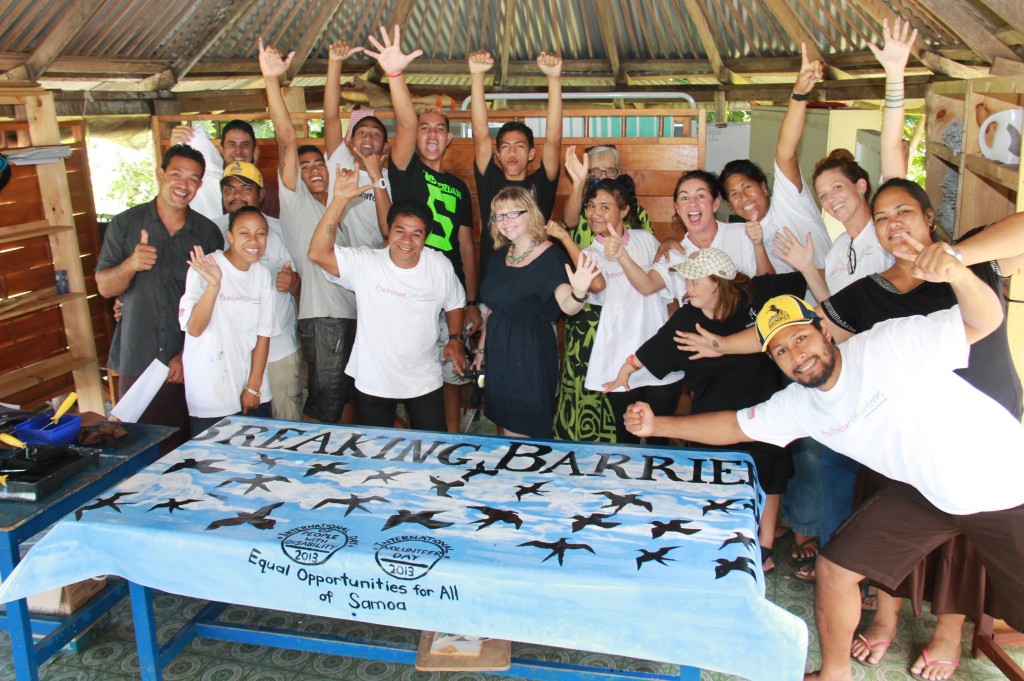
With disability students and other Australian volunteers in front of the painting done by the students.
This week is a very busy week in Samoa in the disability community. We are celebrating the International Day of Persons with Disabilities (IDPwD), with a whole week of events. An Opening Ceremony was held yesterday on the island of Savai’i. Generally, official ceremonies and events are held in the capital Apia, on the island of ‘Upolu. However, the organising committee wanted to ensure inclusion of persons with disabilities in Savai’i for this year’s ceremony, and so it was held in the village of Salealoga. It was well attended, by disability NGOs and service providers, as well as students and staff of special schools from around Samoa. The President of NOLA (Nuanua O le Alofa), a disability advocacy organisation based in Apia, gave an excellent speech about the need of inclusion of persons with disabilities in all fields of life in Samoa. This was in keeping with this year’s IDPwD theme, ‘Break barriers, open doors: to realise an inclusive society for all’. There was a speech competition for young school students, in which they had to speak on breaking barriers for inclusion of PwD. That was followed by a debate between students of Amoa College and the Australia-Pacific Technical College (APTC), who debated on whether PwD should be treated the same as other people. The debate demonstrated a need for education about PwD, including an understanding of correct terminology (e.g. to not refer to persons without disabilities as ‘normal’ compared to PwD). Maiava Toma, the Ombudsman, and I attended, and were seated in the Officials’ fale overseeing the proceedings. Maiava was appointed to present the prizes for the speech and debating competitions, and had generously donated the first prize for the speech competition. Continue reading
